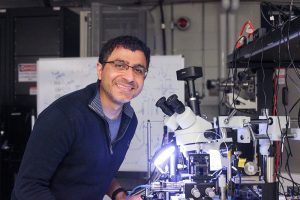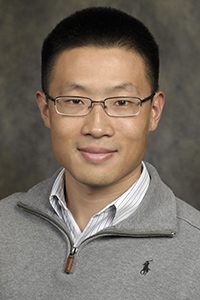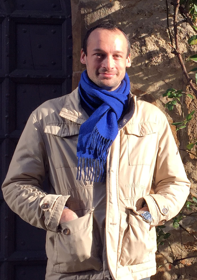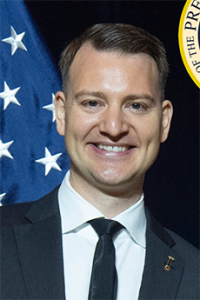Special Theme:
Photonics for AI and AI for Photonics!
Silicon photonics has emerged as a promising solution to realize high-performance computing (HPC) systems required in the Big Data era. Having various applications in the domains of HPC, data centers, sensors and bio-sensing, aerospace, artificial intelligence (AI), etc., it has attracted researchers from academia and industries in different fields to explore various benefits and challenges of this technology. As an emerging area, it demands multidisciplinary collaborations and contributions, from material science and engineering, for realizing low-loss CMOS compatible components, to novel system architectures and software CAD and design tools to explore the design space of the resulting complex devices and systems.
The North American Workshop on Silicon Photonics for High-Performance Computing (SPHPC) will bring together experts in Silicon Photonics and in High-Performance Computing (HPC architects and experts, interconnect architects, HPC systems modeling, etc.) to discuss the state-of-the-art with Silicon Photonics based HPC interconnects and computing platforms (e.g., AI accelerators), and the main challenges that must be addressed to accelerate their development. It will consist of invited talks of the highest caliber from academia, industry, and government agencies as well as from different related disciplines. For SPHPC’23, we will focus on a special theme on Photonics for AI and AI for Photonics. In addition, SPHPC will host a student presentation session to invite students working in this area to present their projects at the workshop and receive feedback on their work. This is the event for meeting professionals in the field as well as exchanging and exploring new ideas.
Invited Speakers
We are excited and delighted to welcome the following colleagues at SPHPC:

Ajay Joshi, Boston University, USA |
Photonic Computing Architectures for AI: A Systems Perspective |

Bhavin Shastri, Queens University, Canada |
Neuromorphic Silicon Photonics and Applications from Classical to Quantum |

Dan-Xia Xu, National Research Council (NRC), Canada |
Optimization in the Non-Convex Design Space of Nanophotonic Components: Mitigation Strategies Using Machine Learning |

David Pan, The University of Texas at Austin, USA |
Closing the Virtuous Cycle of Photonics for AI and AI for Photonics |

Dusan Gostimirovic, McGill University, Canada |
Fabrication-Aware Design of Integrated Photonic Devices Using Convolutional Neural Networks |

Emanuel Peinke, 3e8, Canada |
A Scalable Optics Computing Approach |

Nathan Youngblood, University of Pittsburgh, USA |
Photonic Architectures for Computing In Memory Using Nonvolatile Optical Materials |

Sean Pang, University of Central Florida, USA |
Coherent Matrix Accelerator for Scalable Photonic Information Processing |

Sebastien Le Beux, Concordia University, Canada |
A Nanophotonic Interconnect based on Non-Volatile Phase Change Material |

Sudeep Pasricha, Colorado State University, USA |
Cross-Layer Design of Machine Learning Accelerators with Silicon Photonics |

Volker J. Sorger, George Washington University, USA |
Photonic Machine Intelligence: Tensor Core, Convolution Accelerator, Chip Packaging |
We appreciate the support of our sponsors for SPHPC’23:
 |
 |
